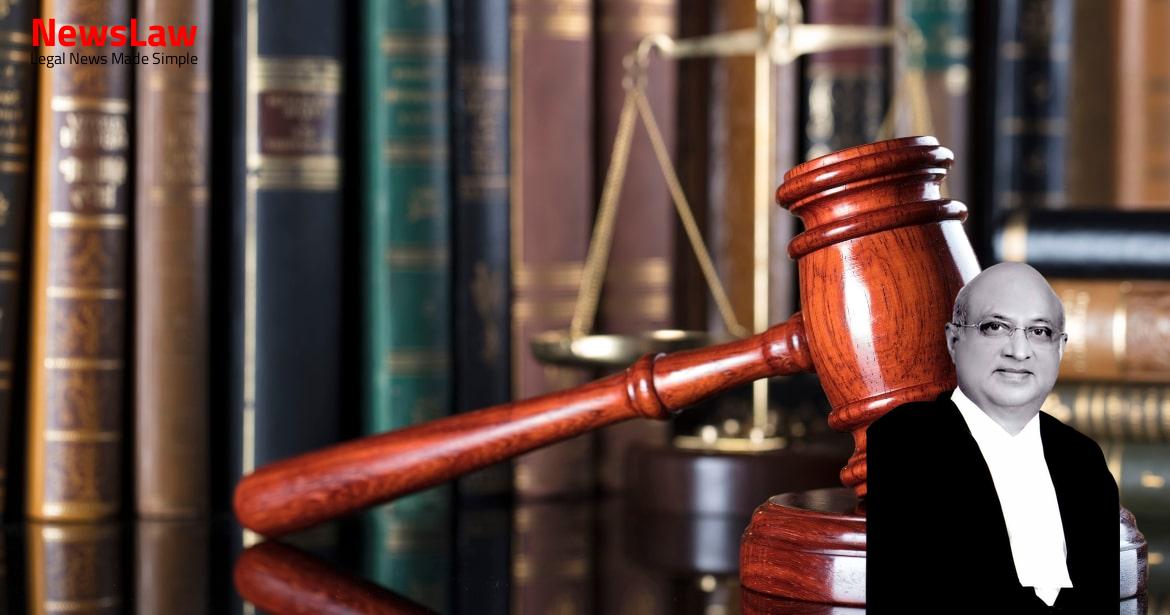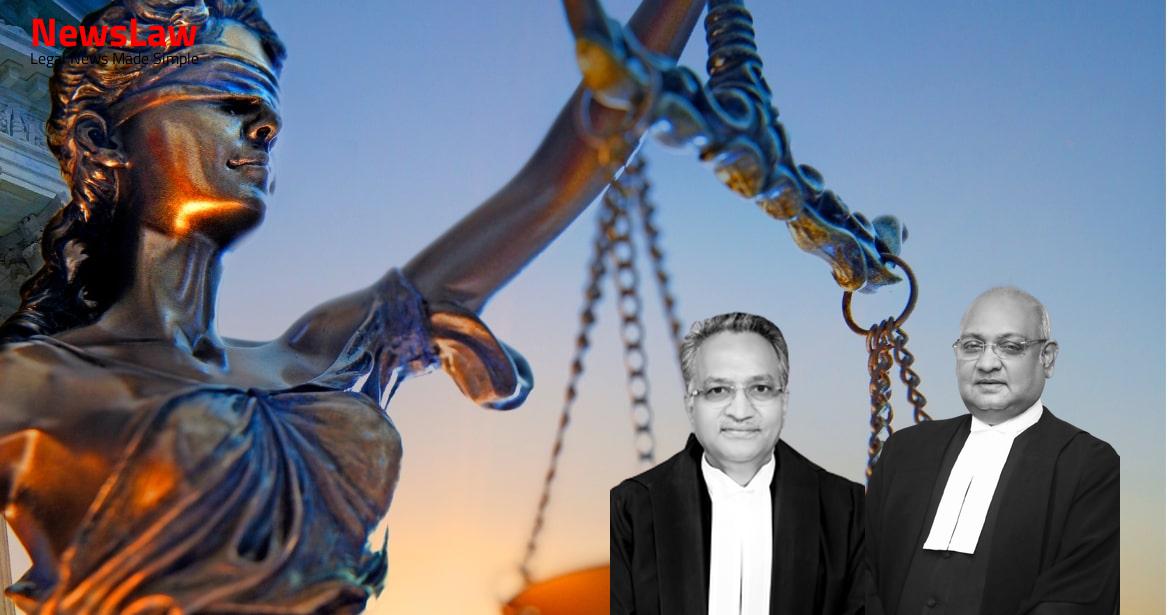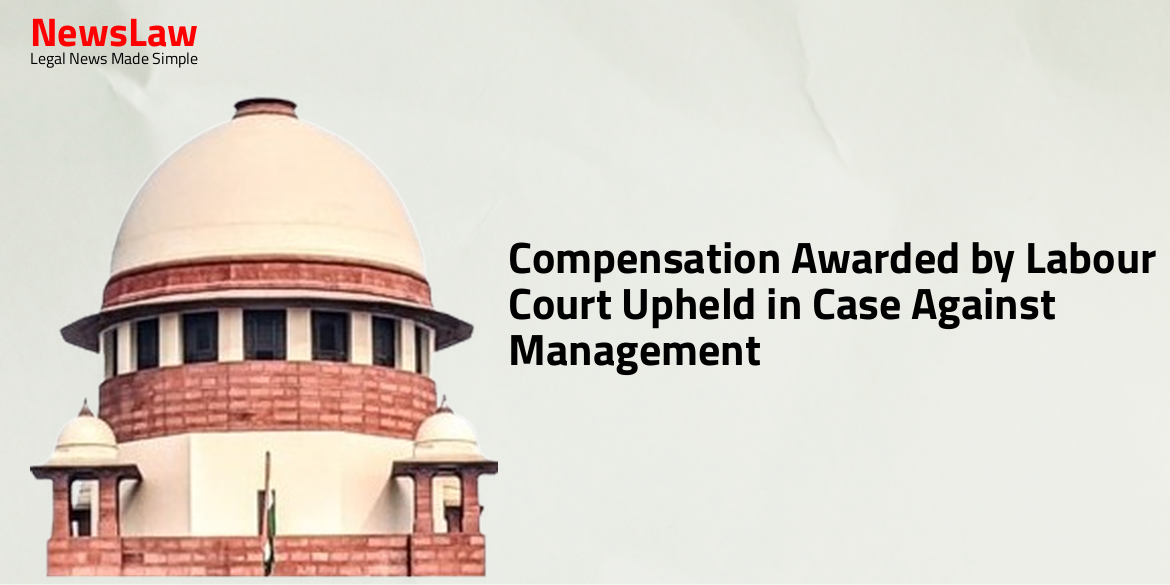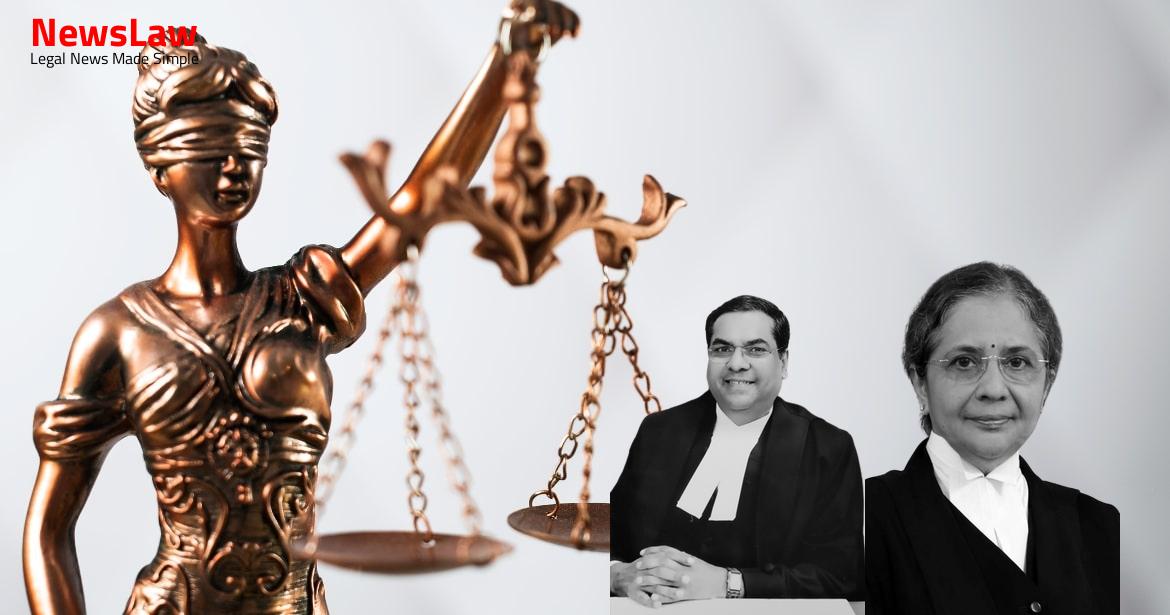In a significant legal battle, the Supreme Court of India recently ruled on the arbitration jurisdiction dispute involving National Aluminum Company Limited and Subhash Infra Engineers Pvt. Ltd. The case delved into the complexity of contract agreements and whether a binding contract was in place between the two parties. The judgment sheds light on the nuances of the Arbitration and Conciliation Act, 1996, and sets a precedent for future cases in similar contexts.
Facts
- Appellant issued work order to Subhash Infra Engineers Pvt. Ltd. (SIE) on 09.11.2011.
- SIE informed appellant that work order is not acceptable in letter dated 02.12.2011.
- Disputes could not be resolved by arbitrator as per SIE, due to absence of binding contract.
- Appellant invoked arbitration clause on 02.09.2015 and appointed Former CMD as arbitrator.
- SIE agreed to contract in letter dated 21.11.2011 but later expressed inability to execute work.
- Appellant informed SIE of financial loss and directed to deposit amount or face arbitration.
- Arbitrator scheduled preliminary meeting on 09.10.2015, SIE approached Civil Court seeking declaration of arbitrator appointment as null and void.
- Relief of permanent injunction sought, which was rejected by Senior Civil Judge.
- First respondent appealed against the rejection to District Court.
- Civil appeal filed by National Aluminum Company Limited (NALCO) against the order of Civil Revision No.2471 of 2016 (O&M) by High Court of Punjab and Haryana at Chandigarh.
- The Appellate Court, Additional District Judge, Gurgaon, granted the injunction requested by the appellant.
- The injunction was to restrain the second respondent-arbitrator from proceeding further based on a notice dated 07.09.2015.
- The appellant filed a Civil Revision No 2471 of 2016 challenging the order before the High Court of Punjab and Haryana at Chandigarh.
- The High Court dismissed the Civil Revision on 22.10.2016.
- This appeal by way of Special Leave is filed in response to the High Court’s decision.
Also Read: State of West Bengal vs. Respondents: Abetment of Suicide Case
Arguments
- The learned senior counsel for the appellant cited the case of Kvaerner Cementation India Limited V. Bajranglal Agarwal and Another as a reference.
- The appellant argues that even if the first respondent questions the arbitrator’s jurisdiction, the first respondent can file an application under Section 16 of the Act before the arbitrator.
- The suit brought by the first respondent for declaration and injunction is deemed not maintainable by the appellant-Company.
Also Read: Judgment in Crl. Revision Petition No. 02/2011
Analysis
- The acceptance of the bid was not unconditional, therefore it does not amount to a binding contract between the appellant and the first respondent.
- As per the terms and conditions of the NIT and the General Conditions of Contract, a binding contract requires more than just acceptance of the bid.
- Thus, the arbitrator does not have jurisdiction to decide the dispute between the parties as there was no concluded contract.
- The appellant’s argument that the acceptance of the bid concluded the contract and that the dispute should be resolved through arbitration is not valid without a binding contract in place.
- The appellant believes that the acceptance of the offer submitted by the respondent constitutes an arbitration agreement under the Arbitration and Conciliation Act, 1996.
- In the case of Kvaerner Cementation India Limited v. Bajranglal Agarwal and Another, the court held that objections regarding the existence or validity of the arbitration agreement must be raised through an application under Section 16 of the Act.
- Civil courts do not have jurisdiction to address such objections.
- Based on the above judgment and communications between the parties, the court agrees that Bajranglal Agarwal can raise objections to the arbitration agreement by applying before the arbitrator, but not through a suit for declaration and injunction.
- The Trial Court rejected the interim injunction sought by the first respondent.
- The Additional District Judge erroneously reversed the Trial Court’s decision.
- The High Court confirmed the Additional District Judge’s decision.
- The appellant appointed Sri C.R. Pradhan, former Chairman-cum-Managing Director of the company, as an arbitrator after the first respondent did not select one from the panel.
- The appointment of the second respondent as an arbitrator is not valid according to the Fifth Schedule introduced by Act 3 of 2016.
- The orders of the Additional District Judge and the High Court are not in accordance with the law and contrary to the judgments of the Court.
- The impugned order should be set aside by vacating the injunction orders.
Also Read: Partnership Dissolution Case: Legal Heirs’ Rights Upheld
Decision
- Allowed the Civil Appeal and set aside the impugned order by the High Court of Punjab & Haryana
- Quashed the appointment of the second respondent as an Arbitrator
- Clarified that if the first respondent disputes the arbitrator’s jurisdiction, they can file an application under Section 16 of the Act
- If such an application is filed, it is to be decided on its own merits in accordance with the law
Case Title: NATIONAL ALUMINIUM COMPANY LTD. Vs. SUBHASH INFRA ENGINEERS PVT. LTD AND ANR
Case Number: C.A. No.-006605-006605 / 2019



